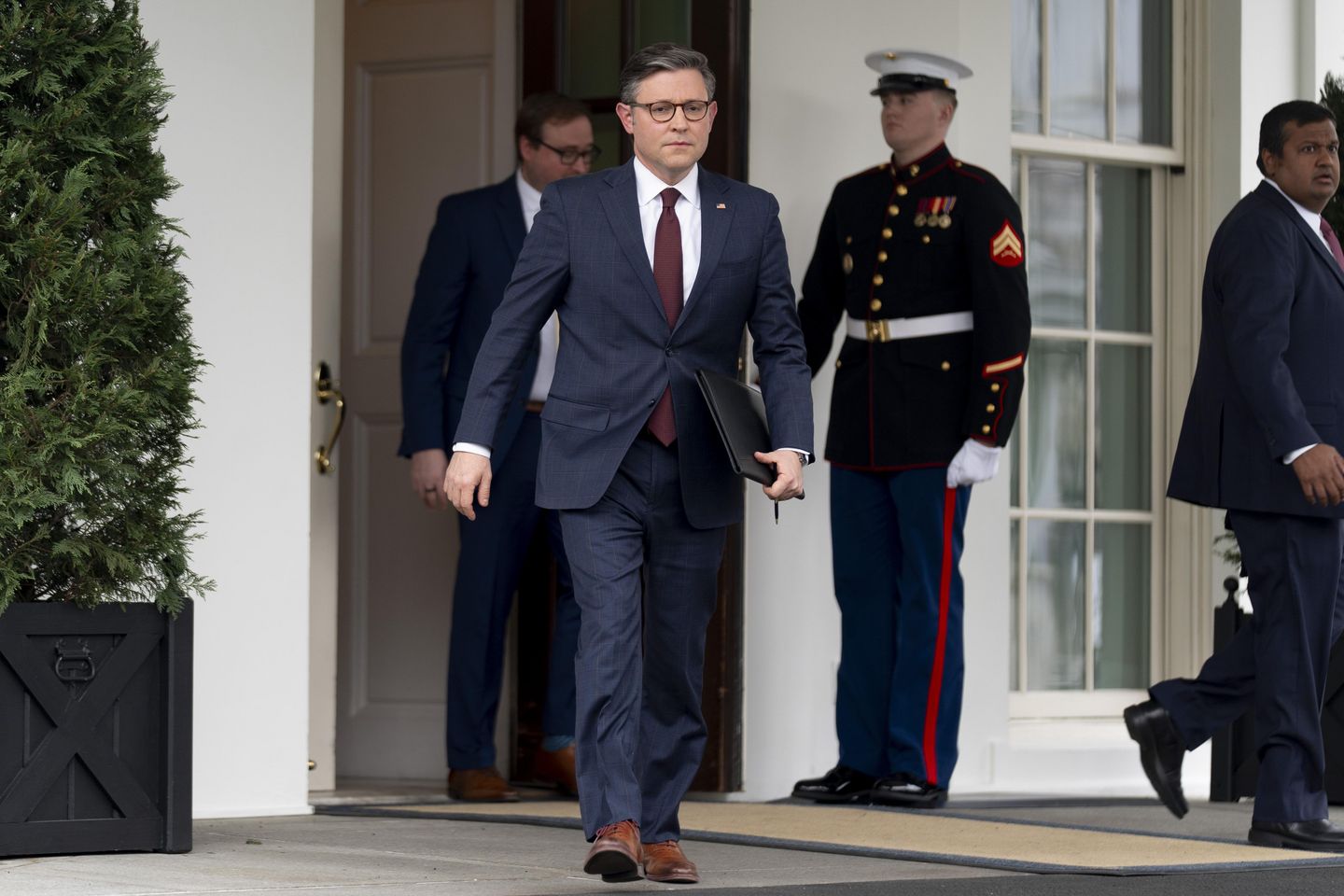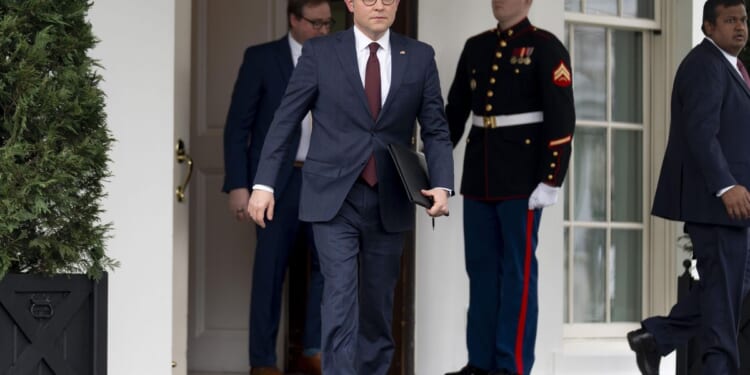
Congressional leaders struck a deal Wednesday to again avoid another partial government shutdown and are expected to vote on another stopgap bill by the end of the week.
The fourth short-term funding patch would continue House Speaker Mike Johnson’s two-step approach by moving the funding deadlines back to March 8 and March 22.
The deadlines to fund the government from the previous stopgap bill were March 1 and March 8.
The deal was reached by Mr. Johnson, Louisiana Republican, Senate Majority Leader Charles E. Schumer, New York Democrat, Senate Minority Leader Mitch McConnell, Kentucky Republican, and House Minority Leader Hakeem Jeffries, New York Democrat and the chairs and ranking members of the appropriators committees in both chambers.
“To give the House and Senate Appropriations Committees adequate time to execute on this deal in principle, including drafting, preparing report language, scoring and other technical matters, and to allow members 72 hours to review, a short-term continuing resolution to fund agencies through March 8 and the 22 will be necessary, and voted on by the House and Senate this week,” the lawmakers said in a joint statement.
Now, after months of delay and stagnation in both chambers, Congress will parse out the dozen spending bills needed to fund the government into two different packages of six funding measures.
Lawmakers are expected to tackle six spending bills by the first deadline next week and the other six by late March.
The first tranche of bills will include measures that fund the VA, agriculture, interior, transportation, energy and water, and commerce, justice and science.
News of the latest funding patch comes after Mr. Johnson committed to averting a shutdown in a meeting Tuesday at the White House.
Mr. Johnson will likely again have to heavily rely on Democrats to pass it. The last stopgap bill saw 106 Republican defections.
“The first installment of the Omnibus is allegedly coming up for a vote next week,” said Rep. Thomas Massie, Kentucky Republican, on X. “They’ve been writing this behemoth behind closed doors for weeks. If just 1/3 of US Representatives will oppose it we can stop this monstrosity.”
Mr. Johnson also must contend with members of the House Freedom Caucus who have pressed for a yearlong stopgap bill that would trigger an automatic 1% in spending across the board. They have threatened to oust him before and the new stopgap could provoke an anti-Johnson revolt.
Lawmakers have warned that the cut would hurt, among other funding priorities, military spending.
Rep. Chip Roy, a Texas Republican aligned with the rebellious archconservatives, said Congress should pass the yearlong funding measure, which would last until Sept. 30, because it would cut $70 billion in spending.
“And then we could sit down and have a debate over [the] security supplemental, about the border, about Ukraine, about Israel, about FISA, about defense spending, and actually talking about how we want to secure our country first,” Mr. Roy said.
Mr. Roy declined to say whether Mr. Johnson’s job would be on the line if he pushed forward with his stopgap bill. But he stressed that “any Republican who’s just standing up and saying otherwise” to the spending cuts from the 1% trigger “don’t deserve to be put back in power.”
By this part of the year, lawmakers typically are beginning work on the spending bills for the upcoming fiscal year.
But a firm commitment from Republicans to pass spending bills one by one, rather than turning to a massive, catchall omnibus spending bill, has bogged down the process.
So far, the House has passed seven of the dozen spending bills while the Senate has only passed three.
Sen. Kevin Cramer, North Dakota, said that he wanted leadership in both chambers “absolutely committed” to passing bills one by one, but wanted to get this year’s spending taken care of and begin work on fiscal year 2025 bills.
“Whoever wants to be the Republican leader better sign in blood they’re committed to starting the appropriations process early in the year, even before the budget comes out,” Mr. Cramer said.












